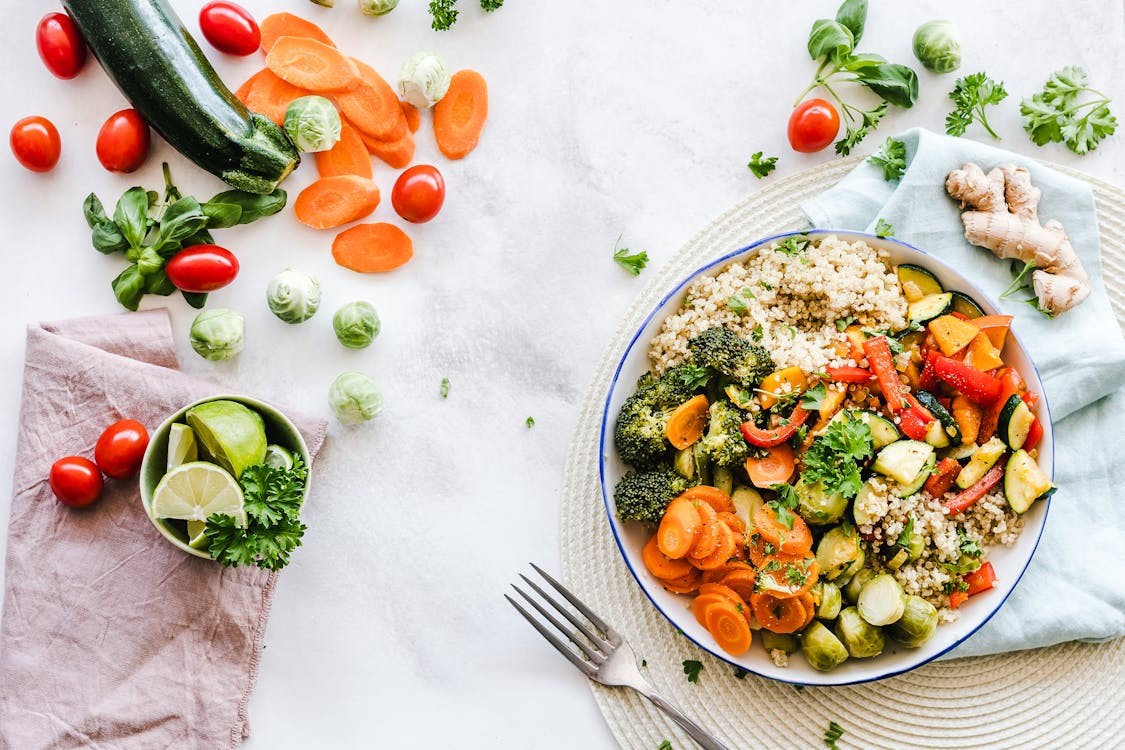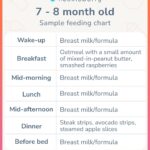Foods That Help Constipation offer a natural and effective solution for digestive health, promoting regular bowel movements. FOODS.EDU.VN provides a comprehensive guide to these foods, offering relief and promoting overall well-being through dietary adjustments. Unlock the power of fiber-rich foods and natural laxatives for a happier, healthier gut.
1. Understanding Constipation and The Role of Diet
Constipation is a prevalent digestive issue characterized by infrequent bowel movements or difficulty passing stools. It can lead to discomfort, bloating, and even more severe health problems if left unaddressed. Diet plays a monumental role in preventing and alleviating constipation. A diet lacking in fiber and fluids can significantly contribute to this condition, while a balanced diet rich in these elements can promote regular bowel movements and overall digestive wellness.
1.1. What is Constipation?
Constipation is defined as having fewer than three bowel movements a week, with stools that are hard, dry, and difficult to pass. Chronic constipation may indicate underlying health issues and should be evaluated by a healthcare professional. Understanding the symptoms and causes is the first step in finding effective relief through dietary and lifestyle changes.
1.2. The Importance of Diet in Managing Constipation
The food we consume directly impacts our digestive system. A diet high in processed foods, low in fiber, and lacking in fluids can slow down bowel movements. Conversely, a diet rich in fiber and adequate hydration promotes softer stools and regular bowel movements. Incorporating specific foods known for their natural laxative effects can significantly improve digestive health and alleviate constipation.
1.3. How FOODS.EDU.VN Can Help You Navigate Dietary Solutions
FOODS.EDU.VN is dedicated to providing you with accurate and practical information about the foods that promote digestive health. Our extensive resources include:
- Detailed articles on the benefits of fiber-rich foods.
- Easy-to-follow recipes that incorporate constipation-relieving ingredients.
- Expert advice on creating a balanced diet tailored to your individual needs.
- Tips on staying hydrated to support optimal digestive function.
With FOODS.EDU.VN, you have a trusted partner in your journey to better digestive health.
2. High-Fiber Foods: Nature’s Solution to Constipation
Fiber is an indigestible carbohydrate that adds bulk to the stool, making it easier to pass. Increasing fiber intake is one of the most effective dietary strategies for relieving constipation. There are two types of fiber: soluble and insoluble, both of which play crucial roles in digestive health.
2.1. The Role of Fiber in Digestive Health
Soluble fiber dissolves in water, forming a gel-like substance that softens stools and slows down digestion. This type of fiber can also help lower cholesterol levels and regulate blood sugar.
Insoluble fiber does not dissolve in water and adds bulk to the stool, helping it move more quickly through the digestive tract.
Both types of fiber are essential for maintaining regular bowel movements and preventing constipation.
2.2. Top Fiber-Rich Foods
Incorporating these fiber-rich foods into your daily diet can significantly improve your digestive health:
| Food | Fiber Content (per serving) | Benefits |
|---|---|---|
| Chia Seeds | 10 grams per ounce | High in soluble fiber, which absorbs water and forms a gel, softening stools and promoting regularity. |
| Flaxseeds | 3 grams per tablespoon | Rich in both soluble and insoluble fiber, providing bulk to the stool and facilitating easier passage through the digestive tract. |
| Prunes | 2 grams per 5 prunes | Contain sorbitol, a natural sugar alcohol that acts as a laxative by drawing water into the intestines, softening stools and stimulating bowel movements. |
| Apples | 4 grams per medium apple | High in pectin, a soluble fiber that can help regulate bowel movements and soften stools. |
| Pears | 6 grams per medium pear | Similar to apples, pears are rich in pectin and fiber, promoting regular bowel movements and relieving constipation. |
| Broccoli | 5 grams per cup | A good source of insoluble fiber, adding bulk to the stool and promoting regular bowel movements. Also contains sulforaphane, which may protect against colon cancer. |
| Brussels Sprouts | 4 grams per cup | High in fiber and glucosinolates, which support detoxification and digestive health. |
| Lentils | 15 grams per cup | An excellent source of both soluble and insoluble fiber, promoting regular bowel movements and providing essential nutrients. |
| Beans (Kidney, Black) | 11-15 grams per cup | Packed with fiber, beans help add bulk to the stool and facilitate easier passage. |
| Oats | 4 grams per cup cooked | Contain beta-glucan, a soluble fiber that forms a gel in the digestive tract, softening stools and promoting regularity. |



2.3. How to Incorporate More Fiber Into Your Diet
- Start Slowly: Gradually increase your fiber intake to avoid gas and bloating.
- Read Labels: Check food labels for fiber content and choose products with higher amounts.
- Add to Meals: Sprinkle flaxseeds or chia seeds on your cereal, yogurt, or salads.
- Choose Whole Grains: Opt for whole wheat bread, pasta, and brown rice instead of refined grains.
- Snack Smart: Choose fruits and vegetables like apples, pears, carrots, and celery as snacks.
3. The Power of Hydration: Water and Other Liquids
Water is essential for overall health, and it plays a critical role in preventing and relieving constipation. Adequate hydration helps soften stools, making them easier to pass. When you don’t drink enough water, your body absorbs water from the stool, leading to hard, dry stools that are difficult to eliminate.
3.1. Why Water is Crucial for Constipation Relief
Water helps fiber do its job more effectively. Fiber absorbs water, adding bulk to the stool. Without enough water, the stool can become hard and difficult to pass, leading to constipation. Staying hydrated ensures that the stool remains soft and easy to eliminate.
3.2. Best Liquids to Consume
- Water: The best choice for hydration. Aim for at least eight glasses a day.
- Fruit and Vegetable Juices: Natural fruit and vegetable juices can provide hydration and additional nutrients.
- Clear Soups: Broth-based soups are hydrating and easy to digest.
- Herbal Teas: Certain herbal teas, like peppermint and ginger, can soothe the digestive system and promote bowel movements.
3.3. Liquids to Avoid
- Alcohol: Can dehydrate the body and worsen constipation.
- Caffeinated Beverages: Excessive caffeine can have a diuretic effect, leading to dehydration.
- Sugary Drinks: Sodas and sweetened beverages can contribute to dehydration and provide little nutritional value.
3.4. Staying Hydrated Throughout the Day
Make it a habit to drink water throughout the day. Carry a water bottle with you and refill it regularly. Drink water before, during, and after meals. Set reminders on your phone to drink water at regular intervals.
4. Fruits That Act as Natural Laxatives
Certain fruits contain compounds that act as natural laxatives, promoting bowel movements and relieving constipation. These fruits are rich in fiber, water, and other beneficial substances that support digestive health.
4.1. Prunes: The Constipation Superhero
Prunes are renowned for their natural laxative properties. They contain sorbitol, a sugar alcohol that draws water into the intestines, softening stools and stimulating bowel movements. Prunes are also rich in fiber, further enhancing their constipation-relieving effects.
- How to Consume: Eat a few prunes daily or drink prune juice. Start with a small serving and gradually increase as needed.
4.2. Figs: A Sweet Solution
Figs are another excellent source of fiber and can help relieve constipation. They contain both soluble and insoluble fiber, promoting regular bowel movements and adding bulk to the stool.
- How to Consume: Eat fresh or dried figs as a snack or add them to your breakfast cereal or yogurt.
4.3. Citrus Fruits: Vitamin C and Fiber
Citrus fruits like oranges, grapefruits, and lemons are rich in vitamin C and fiber, both of which can help promote digestive health. The fiber in citrus fruits adds bulk to the stool, while vitamin C can help soften stools.
- How to Consume: Eat whole citrus fruits for maximum fiber benefits or drink fresh-squeezed citrus juice.
4.4. Berries: Antioxidants and Fiber
Berries like strawberries, blueberries, and raspberries are packed with antioxidants and fiber, making them a great addition to a constipation-relieving diet. The fiber in berries adds bulk to the stool and promotes regular bowel movements.
- How to Consume: Eat berries as a snack, add them to your breakfast cereal or yogurt, or blend them into smoothies.
5. Vegetables for Digestive Regularity
Vegetables are an essential part of a healthy diet, and many vegetables are particularly beneficial for promoting digestive regularity. They are rich in fiber, vitamins, and minerals that support overall digestive health and prevent constipation.
5.1. Leafy Greens: Nutrient-Packed Fiber
Leafy greens like spinach, kale, and collard greens are excellent sources of fiber and essential nutrients. The fiber in leafy greens adds bulk to the stool and promotes regular bowel movements.
- How to Consume: Add leafy greens to salads, smoothies, or cooked dishes like soups and stews.
5.2. Broccoli: A Fiber Powerhouse
Broccoli is a cruciferous vegetable that is rich in fiber and other beneficial compounds. The fiber in broccoli adds bulk to the stool and promotes regular bowel movements. Broccoli also contains sulforaphane, which may protect against colon cancer.
- How to Consume: Eat broccoli raw, steamed, roasted, or added to stir-fries and other dishes.
5.3. Carrots: Crunchy and Beneficial
Carrots are a good source of fiber and beta-carotene, an antioxidant that is converted into vitamin A in the body. The fiber in carrots adds bulk to the stool and promotes regular bowel movements.
- How to Consume: Eat carrots raw as a snack, add them to salads, or cook them in soups and stews.
5.4. Sweet Potatoes: A Delicious Digestive Aid
Sweet potatoes are a starchy vegetable that is rich in fiber and other nutrients. The fiber in sweet potatoes adds bulk to the stool and promotes regular bowel movements.
- How to Consume: Bake, roast, or mash sweet potatoes and serve them as a side dish.
6. Probiotic-Rich Foods: Nurturing Your Gut Microbiome
Probiotics are beneficial bacteria that live in your gut and play a crucial role in digestive health. They help maintain a healthy balance of bacteria in the gut, which can improve digestion, boost immunity, and prevent constipation.
6.1. The Gut Microbiome and Constipation
The gut microbiome is a complex community of bacteria, fungi, and other microorganisms that live in your digestive tract. When the balance of bacteria in the gut is disrupted, it can lead to digestive issues like constipation. Probiotics help restore this balance, promoting regular bowel movements and overall digestive health.
6.2. Top Probiotic Foods
- Yogurt: A fermented dairy product that is rich in probiotics. Choose yogurt with live and active cultures for maximum benefits.
- Kefir: A fermented milk drink that is similar to yogurt but has a thinner consistency. It is also rich in probiotics.
- Sauerkraut: Fermented cabbage that is a good source of probiotics and fiber.
- Kimchi: A Korean dish made from fermented vegetables, typically cabbage and radishes. It is rich in probiotics and other beneficial compounds.
- Kombucha: A fermented tea drink that is rich in probiotics and antioxidants.
6.3. How to Include Probiotics in Your Diet
- Choose Yogurt with Live Cultures: Look for yogurt that is labeled with “live and active cultures” to ensure that it contains probiotics.
- Add Fermented Foods to Your Meals: Incorporate sauerkraut, kimchi, or other fermented foods into your meals.
- Drink Kombucha: Choose kombucha that is low in sugar and does not contain artificial sweeteners.
7. Healthy Fats: Lubricating the Digestive System
Healthy fats play an important role in digestive health by lubricating the digestive system and promoting regular bowel movements. They can help soften stools and make them easier to pass.
7.1. The Role of Fats in Digestion
Fats help stimulate the release of bile, a digestive fluid that helps break down fats and promote regular bowel movements. They also help lubricate the digestive tract, making it easier for stool to pass.
7.2. Best Sources of Healthy Fats
- Olive Oil: A monounsaturated fat that is beneficial for heart health and can help lubricate the digestive system.
- Avocados: Rich in monounsaturated fats and fiber, avocados are a great addition to a constipation-relieving diet.
- Nuts and Seeds: Almonds, walnuts, flaxseeds, and chia seeds are good sources of healthy fats and fiber.
- Fatty Fish: Salmon, tuna, and mackerel are rich in omega-3 fatty acids, which are beneficial for overall health and can help promote digestive regularity.
7.3. How to Incorporate Healthy Fats Into Your Diet
- Use Olive Oil for Cooking: Replace butter or other unhealthy fats with olive oil for cooking.
- Add Avocado to Your Meals: Slice avocado on toast, add it to salads, or blend it into smoothies.
- Snack on Nuts and Seeds: Choose a handful of nuts or seeds as a healthy snack.
- Eat Fatty Fish Regularly: Aim to eat fatty fish at least twice a week.
8. Foods to Avoid When Constipated
While certain foods can help relieve constipation, others can worsen the condition. It’s important to be aware of these foods and limit or avoid them when you’re constipated.
8.1. Processed Foods: Low in Fiber, High in Unhealthy Fats
Processed foods are typically low in fiber and high in unhealthy fats and additives, which can contribute to constipation. These foods often lack the essential nutrients needed to support healthy digestion.
- Examples: Fast food, chips, packaged snacks, frozen meals.
8.2. Dairy Products: Potential for Digestive Discomfort
Dairy products can cause digestive discomfort for some people, particularly those who are lactose intolerant. Lactose intolerance can lead to bloating, gas, and constipation.
- Examples: Milk, cheese, yogurt (unless it contains live and active cultures).
8.3. Red Meat: Slows Down Digestion
Red meat is high in fat and can be difficult to digest, which can slow down bowel movements and contribute to constipation.
- Examples: Beef, pork, lamb.
8.4. Fried Foods: Hard to Digest
Fried foods are high in fat and can be difficult to digest, leading to bloating and constipation.
- Examples: French fries, fried chicken, doughnuts.
8.5. Sugary Foods: Lack of Nutritional Value
Sugary foods provide little nutritional value and can disrupt the balance of bacteria in the gut, which can contribute to constipation.
- Examples: Candy, soda, pastries.
8.6. Alcohol: Dehydrating Effects
Alcohol can dehydrate the body, which can lead to hard, dry stools and constipation.
- Examples: Beer, wine, liquor.
9. Sample Meal Plans for Constipation Relief
Creating a balanced meal plan that includes fiber-rich foods, adequate hydration, and healthy fats can help relieve constipation and promote regular bowel movements.
9.1. One-Day Meal Plan
- Breakfast: Oatmeal with berries and flaxseeds
- Lunch: Salad with leafy greens, grilled chicken, avocado, and olive oil dressing
- Dinner: Baked sweet potato with steamed broccoli and lentils
- Snacks: Apple slices with almond butter, a handful of prunes
- Beverages: Water, herbal tea
9.2. Three-Day Meal Plan
Day 1:
- Breakfast: Yogurt with chia seeds and fruit
- Lunch: Whole wheat sandwich with hummus and vegetables
- Dinner: Salmon with roasted Brussels sprouts and quinoa
- Snacks: Pear, a handful of walnuts
- Beverages: Water, prune juice
Day 2:
- Breakfast: Smoothie with spinach, banana, and almond milk
- Lunch: Lentil soup with whole grain bread
- Dinner: Chicken stir-fry with brown rice and lots of vegetables
- Snacks: Orange, a handful of almonds
- Beverages: Water, herbal tea
Day 3:
- Breakfast: Whole wheat toast with avocado and egg
- Lunch: Salad with chickpeas, cucumber, and tomato
- Dinner: Turkey meatballs with zucchini noodles and marinara sauce
- Snacks: Berries, a handful of flaxseeds
- Beverages: Water, kombucha
9.3. Tips for Following a Meal Plan
- Plan Ahead: Take the time to plan your meals and snacks for the week.
- Shop Smart: Make a grocery list based on your meal plan and stick to it.
- Prepare in Advance: Prepare meals and snacks in advance to make it easier to stay on track.
- Stay Hydrated: Drink plenty of water throughout the day.
- Listen to Your Body: Adjust your meal plan as needed based on your individual needs and preferences.
10. Lifestyle Changes to Support Digestive Health
In addition to dietary changes, certain lifestyle changes can also help relieve constipation and promote digestive health.
10.1. Regular Exercise: Stimulating Bowel Movements
Regular exercise helps stimulate bowel movements and can improve digestive regularity. Aim for at least 30 minutes of moderate-intensity exercise most days of the week.
- Examples: Walking, running, swimming, cycling.
10.2. Managing Stress: Reducing Digestive Issues
Stress can have a negative impact on digestive health and can contribute to constipation. Practice stress-reducing techniques like yoga, meditation, or deep breathing exercises.
10.3. Establishing a Regular Bowel Routine
Establishing a regular bowel routine can help train your body to have regular bowel movements. Try to go to the bathroom at the same time each day, preferably after a meal.
10.4. Responding to the Urge to Go
Don’t ignore the urge to go to the bathroom. Holding it in can lead to constipation.
10.5. Proper Toilet Posture
Proper toilet posture can help make it easier to have a bowel movement. Try using a squat stool to elevate your feet and knees, which can help relax the pelvic floor muscles and promote easier passage of stool.
FAQ About Foods That Help Constipation
1. What are the best foods to eat when constipated?
The best foods to eat when constipated are high in fiber, such as fruits (prunes, figs, apples, pears), vegetables (leafy greens, broccoli, carrots, sweet potatoes), legumes (lentils, beans), and whole grains (oats, whole wheat bread).
2. How much fiber should I eat to relieve constipation?
Adults should aim for 25-35 grams of fiber per day to relieve constipation.
3. How quickly can dietary changes relieve constipation?
Dietary changes can start to relieve constipation within a few days, but it may take several weeks to see significant improvement.
4. Can drinking more water help with constipation?
Yes, drinking more water can help soften stools and make them easier to pass, relieving constipation.
5. Are there any foods I should avoid when constipated?
Yes, you should avoid processed foods, dairy products, red meat, fried foods, sugary foods, and alcohol when constipated.
6. Can probiotics help with constipation?
Yes, probiotics can help restore the balance of bacteria in the gut and promote regular bowel movements, relieving constipation.
7. What are some natural laxatives I can use to relieve constipation?
Some natural laxatives include prunes, figs, flaxseeds, and chia seeds.
8. How can I incorporate more fiber into my diet?
You can incorporate more fiber into your diet by eating more fruits, vegetables, legumes, and whole grains.
9. Is it safe to take fiber supplements for constipation?
Yes, fiber supplements can be a convenient way to increase your fiber intake, but it’s important to start slowly and drink plenty of water.
10. When should I see a doctor for constipation?
You should see a doctor for constipation if it lasts for more than three weeks, if you experience severe pain or bleeding, or if you have other symptoms like weight loss or fatigue.
Navigating dietary solutions for constipation can be overwhelming, but with the right guidance, it can be a smooth and effective process. At FOODS.EDU.VN, we offer comprehensive resources, personalized meal plans, and expert advice to help you find the best dietary strategies for your needs. Don’t let constipation control your life – visit FOODS.EDU.VN today to discover how you can eat your way to better digestive health. For more information, visit our website foods.edu.vn or contact us at 1946 Campus Dr, Hyde Park, NY 12538, United States. Whatsapp: +1 845-452-9600. Your journey to a healthier gut starts here.
